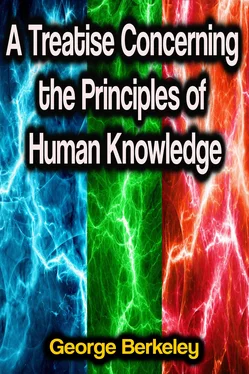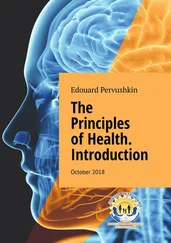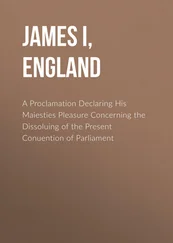George Berkeley
A Treatise Concerning the Principles of Human Knowledge
✓ VISIT OUR WEBSITE:
LyFreedom.com
MY LORD,
You will perhaps wonder that an obscure person, who has not the honour to be known to your lordship, should presume to address you in this manner. But that a man who has written something with a design to promote Useful Knowledge and Religion in the world should make choice of your lordship for his patron, will not be thought strange by any one that is not altogether unacquainted with the present state of the church and learning, and consequently ignorant how great an ornament and support you are to both.Yet, nothing could have induced me to make you this present of my poor endeavours, were I not encouraged by that candour and native goodness which is so bright a part in your lordship's character. I might add, my lord, that the extraordinary favour and bounty you have been pleased to show towards our Society gave me hopes you would not be unwilling to countenance the studies of one of its members. These considerations determined me to lay this treatise at your lordship's feet, and the rather because I was ambitious to have it known that I am with the truest and most profound respect, on account of that learning and virtue which the world so justly admires in your lordship,
MY LORD,
Your lordship's most humble and most devoted servant,
GEORGE BERKELEY
WHAT I here make public has, after a long and scrupulous inquiry, seemed to me evidently true and not unuseful to be known- particularly to those who are tainted with Scepticism, or want a demonstration of the existence and immateriality of God, or the natural immortality of the soul. Whether it be so or no I am content the reader should impartially examine; since I do not think myself any farther concerned for the success of what I have written than as it is agreeable to truth. But, to the end this may not suffer, I make it my request that the reader suspend his judgment till he has once at least read the whole through with that degree of attention and thought which the subject-matter shall seem to deserve. For, as there are some passages that, taken by themselves, are very liable (nor could it be remedied) to gross misinterpretation, and to be charged with most absurd consequences, which, nevertheless, upon an entire perusal will appear not to follow from them; so likewise, though the whole should be read over, yet, if this be done transiently, it is very probable my sense may be mistaken; but to a thinking reader, I flatter myself it will be throughout clear and obvious. As for the characters of novelty and singularity which some of the following notions may seem to bear, it is, I hope, needless to make any apology on that account. He must surely be either very weak, or very little acquainted with the sciences, who shall reject a truth that is capable of demonstration, for no other reason but because it is newly known, and contrary to the prejudices of mankind. Thus much I thought fit to premise, in order to prevent, if possible, the hasty censures of a sort of men who are too apt to condemn an opinion before they rightly comprehend it.
1 Philosophy being nothing else but the study of wisdom and truth, it may with reason be expected that those who have spent most time and pains in it should enjoy a greater calm and serenity of mind, a greater clearness and evidence of knowledge, and be less disturbed with doubts and difficulties than other men. Yet so it is, we see the illiterate bulk of mankind that walk the high-road of plain common sense, and are governed by the dictates of nature, for the most part easy and undisturbed. To them nothing that is familiar appears unaccountable or difficult to comprehend. They complain not of any want of evidence in their senses, and are out of all danger of becoming Sceptics. But no sooner do we depart from sense and instinct to follow the light of a superior principle, to reason, meditate, and reflect on the nature of things, but a thousand scruples spring up in our minds concerning those things which before we seemed fully to comprehend. Prejudices and errors of sense do from all parts discover themselves to our view; and, endeavouring to correct these by reason, we are insensibly drawn into uncouth paradoxes, difficulties, and inconsistencies, which multiply and grow upon us as we advance in speculation, till at length, having wandered through many intricate mazes, we find ourselves just where we were, or, which is worse, sit down in a forlorn Scepticism.
2 The cause of this is thought to be the obscurity of things, or the natural weakness and imperfection of our understandings. It is said, the faculties we have are few, and those designed by nature for the support and comfort of life, and not to penetrate into the inward essence and constitution of things. Besides, the mind of man being finite, when it treats of things which partake of infinity, it is not to be wondered at if it run into absurdities and contradictions, out of which it is impossible it should ever extricate itself, it being of the nature of infinite not to be comprehended by that which is finite.
3 But, perhaps, we may be too partial to ourselves in placing the fault originally in our faculties, and not rather in the wrong use we make of them. It is a hard thing to suppose that right deductions from true principles should ever end in consequences which cannot be maintained or made consistent. We should believe that God has dealt more bountifully with the sons of men than to give them a strong desire for that knowledge which he had placed quite out of their reach. This were not agreeable to the wonted indulgent methods of Providence, which, whatever appetites it may have implanted in the creatures, doth usually furnish them with such means as, if rightly made use of, will not fail to satisfy them. Upon the whole, I am inclined to think that the far greater part, if not all, of those difficulties which have hitherto amused philosophers, and blocked up the way to knowledge, are entirely owing to ourselves- that we have first raised a dust and then complain we cannot see.
4 My purpose therefore is, to try if I can discover what those Principles are which have introduced all that doubtfulness and uncertainty, those absurdities and contradictions, into the several sects of philosophy; insomuch that the wisest men have thought our ignorance incurable, conceiving it to arise from the natural dulness and limitation of our faculties.
And surely it is a work well deserving our pains to make a strict inquiry concerning the First Principles of Human Knowledge, to sift and examine them on all sides, especially since there may be some grounds to suspect that those lets and difficulties, which stay and embarrass the mind in its search after truth, do not spring from any darkness and intricacy in the objects, or natural defect in the understanding, so much as from false Principles which have been insisted on, and might have been avoided.
5 How difficult and discouraging soever this attempt may seem, when I consider how many great and extraordinary men have gone before me in the like designs, yet I am not without some hopes- upon the consideration that the largest views are not always the clearest, and that he who is shortsighted will be obliged to draw the object nearer, and may, perhaps, by a close and narrow survey, discern that which had escaped far better eyes.
6 In order to prepare the mind of the reader for the easier conceiving what follows, it is proper to premise somewhat, by way of Introduction, concerning the nature and abuse of Language. But the unravelling this matter leads me in some measure to anticipate my design, by taking notice of what seems to have had a chief part in rendering speculation intricate and perplexed, and to have occasioned innumerable errors and difficulties in almost all parts of knowledge. And that is the opinion that the mind hath a power of framing abstract ideas or notions of things. He who is not a perfect stranger to the writings and disputes of philosophers must needs acknowledge that no small part of them are spent about abstract ideas. These are in a more especial manner thought to be the object of those sciences which go by the name of Logic and Metaphysics, and of all that which passes under the notion of the most abstracted and sublime learning, in all which one shall scarce find any question handled in such a manner as does not suppose their existence in the mind, and that it is well acquainted with them.
Читать дальше












